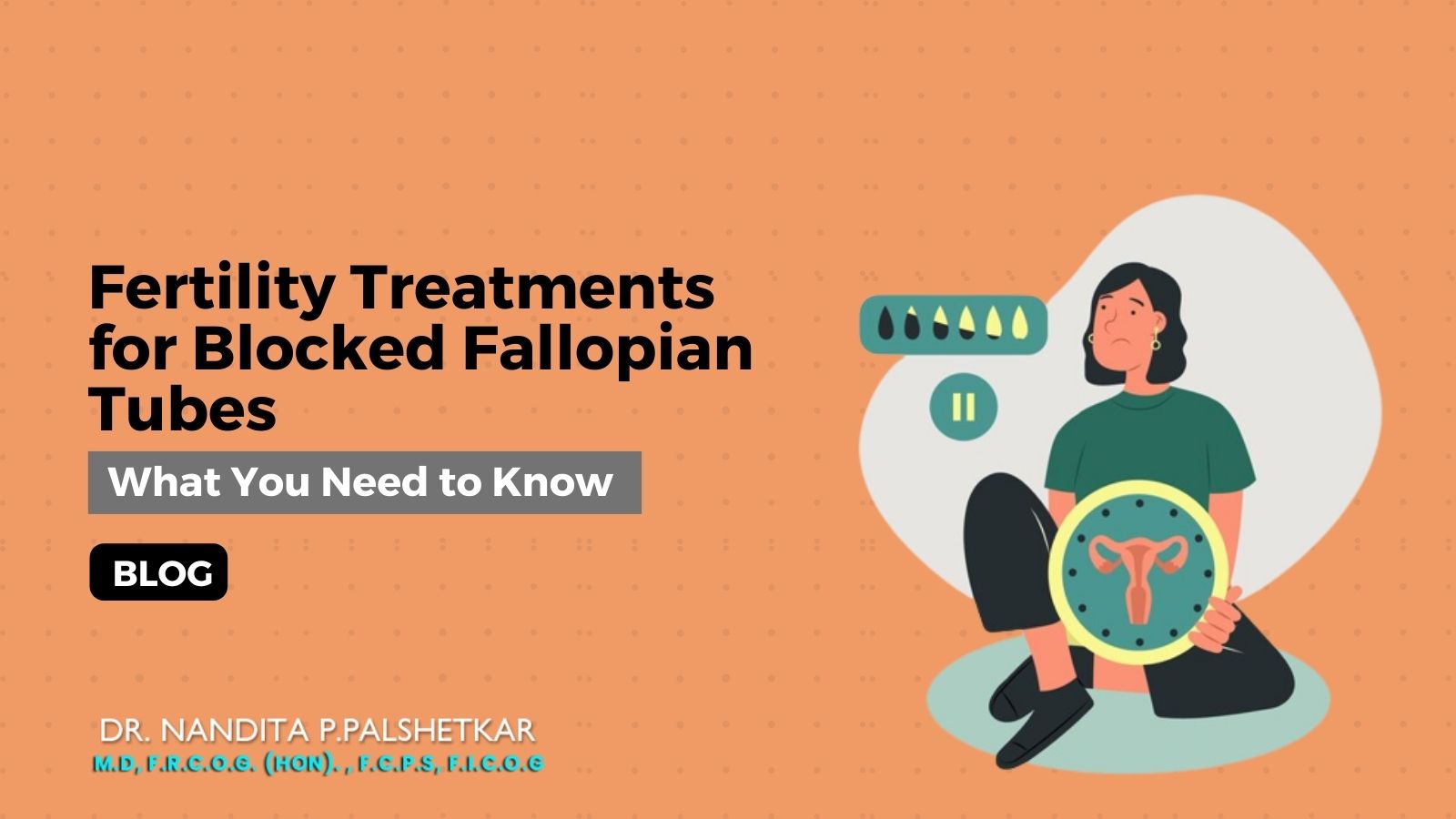

E-Brochure Download Now!

Blocked fallopian tubes are one of the common causes of female infertility, accounting for a significant number of cases where conception becomes difficult. The good news is that modern reproductive medicine offers multiple treatment options to help women overcome this challenge.
In this blog, we’ll explore the causes, symptoms, diagnosis, and treatments for blocked fallopian tubes, including conservative methods, surgical procedures, and In Vitro Fertilisation (IVF).
The fallopian tubes play a vital role in reproduction by carrying eggs from the ovaries to the uterus. When these tubes are blocked, sperm cannot reach the egg, and fertilisation cannot occur.
The most common causes include:
While not all causes can be prevented, maintaining good reproductive health, such as practising safe sex and seeking timely medical advice, can reduce risks.
Blocked fallopian tubes do not always show obvious symptoms, making them difficult to detect without medical testing. However, some women may experience:
These symptoms can sometimes be mistaken for other conditions, so seeking medical evaluation early is crucial.
Diagnosing blocked fallopian tubes usually involves imaging and fertility testing. The most commonly used diagnostic procedure is the Hysterosalpingogram (HSG).
During an HSG, a contrast dye is gently introduced into the uterus, and X-ray imaging is used to observe whether the dye passes through the fallopian tubes. If it doesn’t, it may indicate a blockage.
The test typically takes about 30 minutes and may cause mild discomfort or cramping. Other diagnostic tools include laparoscopy or sonohysterography, which can provide more detailed insights when required.
In mild cases, your fertility specialist may recommend non-surgical treatments first. These include:
However, if both tubes are blocked or scarred, conservative measures alone may not be sufficient.
When non-surgical treatments are ineffective, surgical options can help restore fertility. Two commonly used procedures include:
1. Laparoscopic Surgery
This minimally invasive procedure allows doctors to remove scar tissue or adhesions that block the tubes. A small camera and specialised instruments are inserted through tiny incisions, allowing precise treatment and quicker recovery.
2. Fallopian Tube Recanalisation (FTR)
FTR is a non-surgical technique used to reopen blocked tubes by inserting a thin catheter through the cervix under imaging guidance. It’s generally performed on an outpatient basis and offers a quick recovery.
Your doctor will determine the most appropriate treatment based on the type, severity, and location of the blockage. Both procedures are safe when performed by an experienced fertility specialist, but like any medical treatment, they carry some risks that should be discussed beforehand.
For women with completely blocked or damaged fallopian tubes, IVF offers an excellent solution. The procedure bypasses the tubes entirely by fertilising eggs and sperm in a laboratory. Once the embryos are formed, they are directly transferred into the uterus, eliminating the need for functional tubes.
IVF has helped thousands of women with tubal infertility conceive healthy pregnancies. It is especially recommended when both tubes are blocked, previous surgeries have failed, or the patient has other fertility challenges, such as age-related decline or endometriosis.
If you’re struggling with infertility caused by blocked fallopian tubes, seek guidance from Dr Nandita P. Palshetkar, a leading fertility specialist in India. With her expertise and access to advanced techniques, you can receive effective and compassionate care suited to your needs.
Whether you’re looking for the best IVF doctor in Mumbai, or an experienced fertility specialist in Mumbai, Dr Nandita provides comprehensive fertility solutions to help you achieve your dream of parenthood. Book your consultation now!